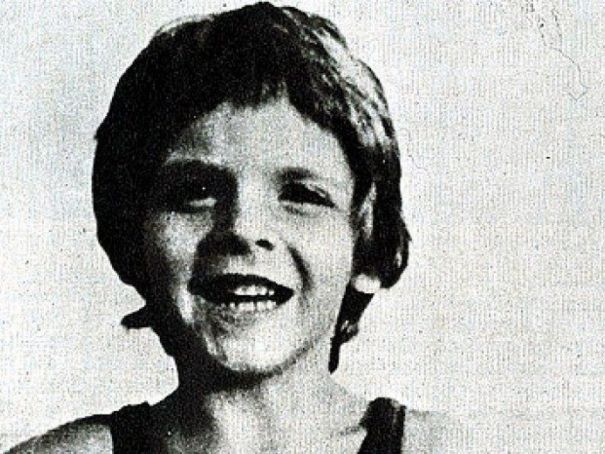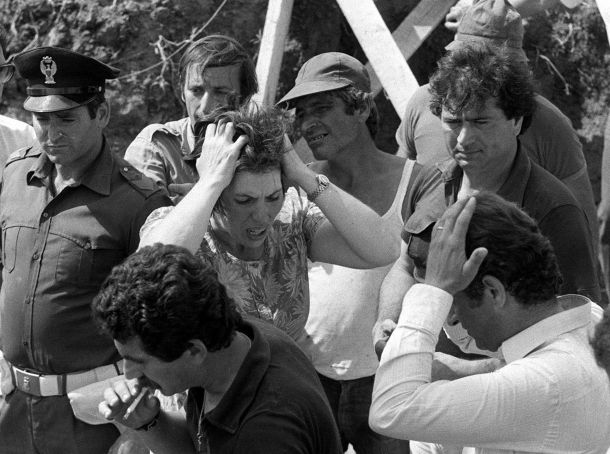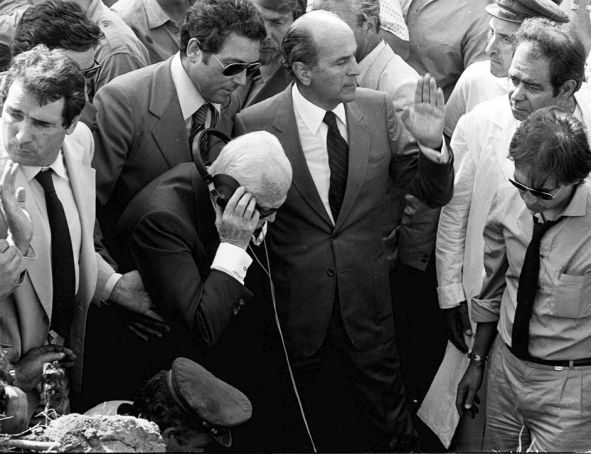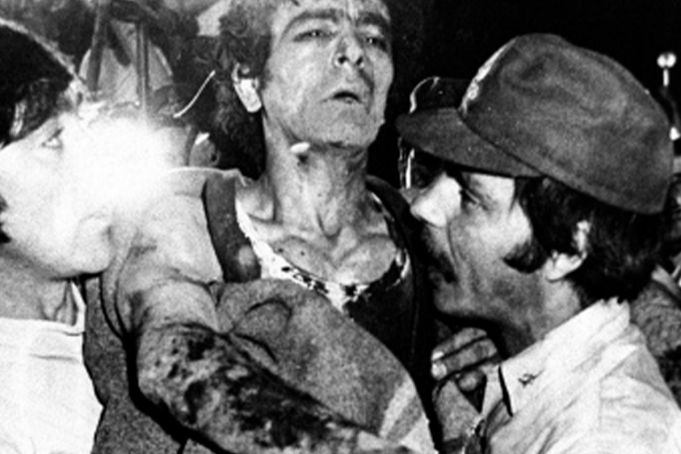Italy looks back on anniversary of Vermicino tragedy whose doomed rescue attempts unfolded on live television.
On this day 43 years ago, a small boy fell deep into a well in a village near Frascati, about 20 km south-east of Rome.
Alfredo Rampi, known as Alfredino, was six years old.
On the evening of 10 June 1981, the boy had asked his father if he could walk back across the field to the family's holiday house. It was a short walk and his father said yes.
When his father returned home later there was no sign of Alfredino. His alarmed parents began looking for him and soon they were joined by a police search party.

The search party came across a well in adjoining property but initially it is excluded as it is covered with a sheet of metal weighed down with rocks.
Shortly afterwards, however, a fire fighter insists on checking the well and, sticking his head into the abyss, he makes out the moans of Alfredino.
'Mamma,' came the faint voice from far below.
It transpires that the owner of the land had covered over the well, which was dug illegally, without realising that the little boy was trapped inside.
An emergency operation to save Alfredino begins.
The rescue is complicated from the outset: the mouth of the well is only 28 cm wide and the tunnel is 80 metres deep, with very irregular walls.
After rescuers lower a lamp inside it is revealed that the child is stuck at a depth of about 36 metres, blocked by a recess.

The first attempt to save Alfredino turns out to be a disaster: the rescuers lower a wooden board into the well, to allow the child to cling to it, but it gets stuck at a depth of 24 metres and the rope tied to it snaps.
The well is now blocked.
During the night, technicians from the state television broadcaster RAI arrive on site and, by lowering their equipment into the well, allow the rescuers to communicate with Alfredino.
Speleologists from the Alpine Rescue volunteer to lower themselves into the well in an attempt to remove the board blocking the rescue operation.
The attempts fail.
It is decided to start digging two tunnels, one vertical and one horizontal, in a bid to reach Alfredino who by now is asking for water.
However the digging is hampered from the start by the tough terrain, then granite, which makes it difficult to tunnel.
Alfredino, who suffers from congenital heart disease, drifts in and out of sleep.
Day break, 11 June. Later in the morning RAI begins broadcasting live from the rescue site in Vermicino. The intention is to film the lead-up to the rescue of Alfredino, expected imminently.
Tragically, this does not go according to plan.
As the day goes by millions of people tune in to watch the rescue attempts. Thousands of people have gathered around the site to watch.
Rescuers work unceasingly, their work impeded frequently by technical obstacles. The cameras keep rolling.
The non-stop television coverage is attracting up to 21 million viewers at peak times. The president of Italy, Sandro Pertini, visits the scene to offer comfort to Alfredino's parents.

A visibly distraught Pertini vows not to move until Alfredino is rescued.
The boy's condition begins to deteriorate.
Then, on the morning of 12 June (a day and a half after his fall) Alfredino stops responding to rescuers.
By that evening, the drilling of the tunnels is complete, with the horizontal tunnel reaching a depth of 34 metres.
Rescuers then make a terrible discovery.
Vibrations from the drilling have caused the boy to slip an estimated 30 metres further down the well.
With Alfredino now not responding and trapped about 60 metres below ground, the only option is to lower someone into the remaining part of the well.
After multiple failed attempts by trained speleologists, rescuers began to choose the smallest, slightest men they could find, to fit into the narrow and increasingly deep abyss.
A volunteer steps forward. His name is Angelo Licheri.
He has travelled from Rome specifically to offer his services.
Liccheri strips to his underwater and is lowered into the shaft, upside down.

After descending for 60 metres, Licheri reaches Alfredino who is very weak but still responsive.
Licheri tries to lift the boy's spirits. He promises to buy him a new bicycle, that he will take him fishing.
All Licheri's attempts to place a harness on Alfredino fail, as do his sustained efforts to pull him upwards, out of the mud. Alfredino slips deeper.
After 45 minutes - far more than the maximum 25 minutes considered safe for an upside-down mission - a desperate Licheri blows Alfredino a kiss, says "Ciao piccolino" and makes the agonising call to be lifted up without the boy.
When Licheri resurfaces, he faints and would be hospitalised for a month from injuries sustained in his mission.
Subsequent attempts by others to save Alfredino fail too. The last miniature volunteer to reach the boy was Donato Caruso. It was dawn on 13 June.
"He's not breathing."
Caruso managed to secure Alfredino with handcuffs but his wrist slipped out and he fell further. Caruso could not budge his inert body from the mud.
After lowering a sonar probe, doctors could not detect a heart beat.
Alfredino Rampi was declared dead at 06.36 on Saturday 13 June. His death was announced live on air, through tears, by television presenter Massimo Valentini.
Alfredino's body would not be recovered until 11 July, a month after he fell.
Aftermath
General Info
View on Map
Alfredino Rampi: Italy remembers tragedy of boy who died in well
00133 Vermicino, Metropolitan City of Rome, Italy




















